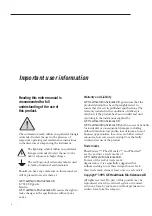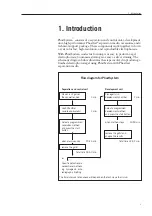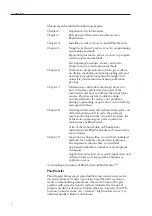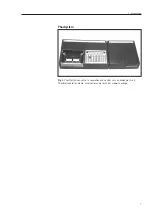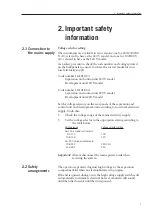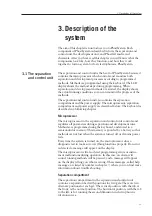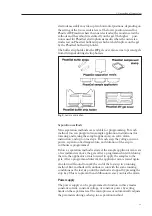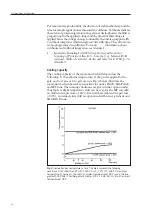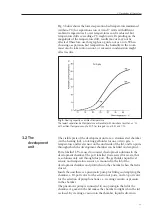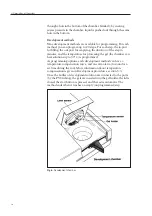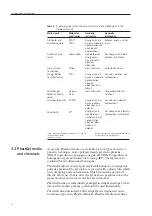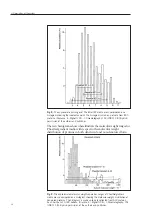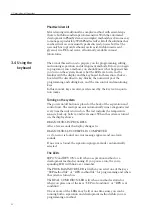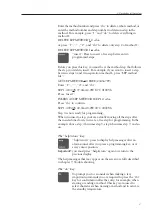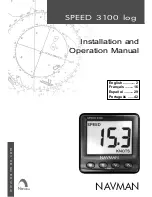
12
The Peltier element automatically cools and heats the separation bed
to the programmed temperature. The programmable temperature
range extends from 0°C to 70°C (see cooling capacity, page 14). The
heat generated during electrophoresis is transferred to a large air
cooled heat sink.
A standby temperature can be programmed to cool (or heat) the
separation bed before methods are started. This saves time since a
method will not start until the bed temperature equals the
programmed temperature for the first step in that method.
The electrode assembly contains two anodes (+), and one cathode (-)
for each gel. The electrodes are made of platinized titanium. An
assembly with reversed polarity is also available for electrophoresis of
basic proteins in their native state. A high voltage power supply, inside
the separation and control unit, generates the required electric field
for electrophoresis (see power supply, page 13). If the lid is opened
during a run, the high voltage supply switches off automatically to
eliminate electrical hazard. An alarm will sound until the lid is closed
or until the run is paused.
Fig. 2.
Separation compartment
Sample application
Samples are applied to gels with PhastGel sample applicators. These
small, comb-like pieces have a series of capillary wells. Samples are
drawn into the capillaries and held there until the applicator is low-
ered onto the gel at a set time in the program. Once the applicators
are loaded with samples they are placed into one of the slots in the
sample applicator arm.
The sample applicator arm has four alternative sample applicator
positions for each gel. The position nearest the cathode is for PhastGel
electrophoresis media, and the other three positions are for PhastGel
IEF media. The plunger toward the back of the compartment holds
the applicator arm up until it is time for sample application.
The electrode assembly and the applicator arm are raised so the gels
can be positioned onto the separation bed. When lowered again, the
3. Description of the system




